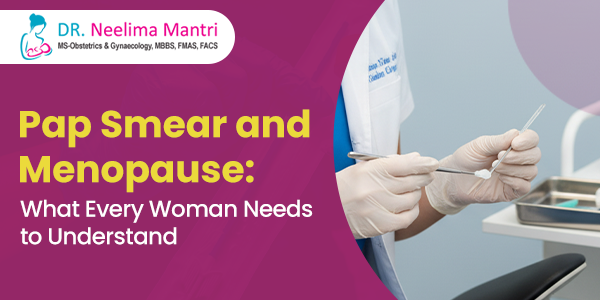Many women assume that routine tests like a Pap smear are no longer required once menopause begins. The truth is that menopause introduces hormonal changes that can silently impact cervical health. Skipping screenings during this stage can allow risks to go undetected. Understanding the link between Pap smear and menopause is the first step toward long-term protection.
Cervical cancer does not pause with ageing
While fertility stops with menopause, the cervix remains just as susceptible to abnormal changes. Human papillomavirus can stay dormant in the body for years and may become active again when oestrogen levels drop. This reactivation risk is why a regular Pap test remains relevant for women past the age of fifty. The question Why is a Pap smear important during menopause? finds its answer in this continued vulnerability.
Changes in the cervix are harder to detect without testing
As oestrogen drops, the cervix may shrink slightly, and the tissues can become thinner and more fragile. These changes may make infections or precancerous conditions harder to detect during a basic pelvic exam. A Pap smear remains the most reliable method to examine cells for abnormalities in women who are experiencing or have completed menopause. Common symptoms linked to menopausal cervical health shifts include:
- Postmenopausal bleeding or spotting
- Vaginal discharge with unusual texture or colour
- Pain during intimacy or pelvic discomfort
- Persistent itching or dryness despite local treatment
- Infections that recur despite good hygiene and care
Pap smear timing should match your health history
Women above the age of sixty-five may not need a Pap test if they have had consistently normal results for over ten years. But for many who have missed regular check-ups or faced health changes, continuing screenings is wise. A detailed conversation with the best female gynaecologist in Mumbai can help decide the right timeline based on your individual case.
Your overall treatment journey matters too.
Managing Menopause Symptoms and Treatment in Mumbai must include regular assessments of both hormonal and reproductive health. From bone density to heart rhythm and cervical changes to mood swings, everything connects during this transition. The body continues to evolve through postmenopause, and that requires continued medical guidance.
Every woman deserves honest and personalised care
Some women may feel uncomfortable discussing intimate issues or asking about a Pap test during later years. Choosing the best gynaecologist in Mumbai makes those conversations easier and more productive. A good practitioner will always ensure you feel heard and supported during every stage of life.
Menopause is not the end of gynaecological care
Asking Why is a Pap smear important during menopause? Leads to answers that protect your future health. Do you know how menopause impacts cervical health? Ensures you stay aware of changes that deserve early medical attention. These questions are not just medical queries but essential reminders of how important self-awareness is during every phase.
For those seeking ongoing guidance across menopause and gynaecological health, Dr Neelima Mantri offers expert care and trusted insights tailored to your body’s evolving needs.



